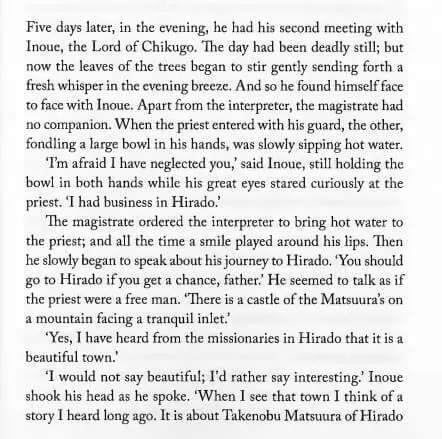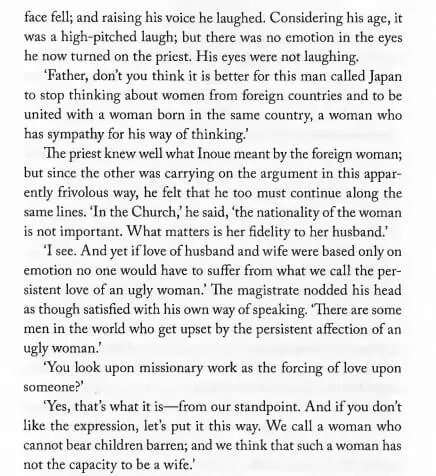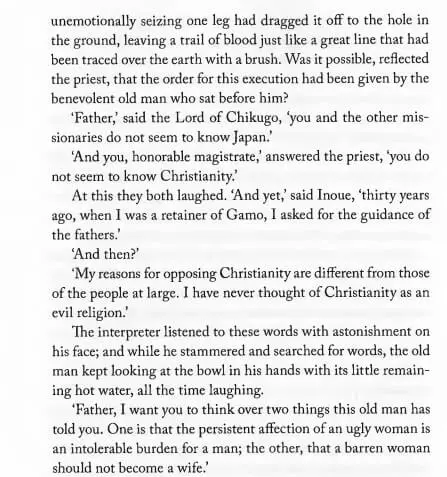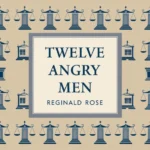Introduction
“Silence” by Shusaku Endo is a haunting tale of faith, doubt, and resilience set against the backdrop of 17th-century Japan’s persecution of Christians. This masterpiece explores profound theological and philosophical questions, making it one of the most celebrated novels in modern literature. Endo’s narrative is not just a historical account but a deeply personal exploration of the struggle between belief and cultural identity.
| Original Title Name of PDF | Chinmoku Shusaku Endo Silence PDF |
|---|---|
| No Pages | 256 |
| Author | Shūsaku Endō |
| Originally Published | 1966 |
| Language | English, Japanese |
| Genres | Historical Fiction |
| Size | 1.47 MB |
| Chek, latest edition |
Table of Contents

The Historical Context
Christianity in 17th-Century Japan
In the early 1600s, Christianity, introduced by European missionaries, faced violent suppression under the Tokugawa Shogunate. Converts were forced to renounce their faith, and many endured brutal martyrdom. This clash between Western religion and Japanese traditions serves as the novel’s foundation.
The Persecution of Christians
The government saw Christianity as a threat to social order and sought to eradicate it through fear and coercion. This period of suffering inspired Endo to delve into the lives of those who grappled with faith under extreme persecution.
The Inspiration Behind the Novel
Endo, a Japanese Catholic, drew from his own experiences of alienation to craft this narrative. His deep understanding of religious identity in a predominantly non-Christian society shaped the novel’s core.
Plot Summary
Setting the Stage: Arrival of Father Rodrigues
The story begins with Father Rodrigues, a Portuguese Jesuit priest, embarking on a perilous journey to Japan to locate his mentor, Father Ferreira, who is rumored to have apostatized under torture.
The Journey into Japan
Rodrigues and his companion face unimaginable hardships as they witness the suffering of hidden Christian communities. Their resolve is tested as they confront the oppressive regime.
The Central Conflict: Faith vs. Betrayal
Rodrigues is captured and forced to choose between preserving his faith and saving others from torment. His eventual apostasy raises questions about moral compromise and spiritual resilience.

Themes in “Silence”
Faith Under Trial
Rodrigues’ unwavering faith is challenged by the relentless persecution of Christians. His internal battles mirror the universal struggle of maintaining belief amidst despair.
Silence of God
The novel’s title reflects the perceived silence of God in the face of suffering. This silence is both a source of anguish and a profound mystery that compels deeper introspection.
Betrayal and Forgiveness
From Kichijiro’s repeated betrayals to Rodrigues’ perceived betrayal of his faith, the novel examines human weakness and the possibility of redemption through forgiveness.
Character Analysis
Father Rodrigues
An embodiment of idealism and dedication, Rodrigues evolves from a confident missionary to a man wrestling with doubt and guilt.
Kichijiro
As a weak and conflicted character, Kichijiro represents the flawed nature of humanity. His complex relationship with Rodrigues adds depth to the narrative.
The Samurai and Inoue
These figures symbolize authority and the pragmatic opposition to Western influence. Their actions force Rodrigues to confront his deepest fears.
Literary Style and Techniques
Endo employs symbolism, vivid imagery, and the epistolary format to immerse readers in Rodrigues’ journey. The novel’s layered narrative invites multiple interpretations.
Religious and Philosophical Questions
Christianity vs. Japanese Cultural Identity
The clash between universal Christian values and Japan’s cultural ethos forms a central tension in the story.
Universal vs. Contextual Truth
Endo questions whether truth is absolute or shaped by cultural contexts, offering a nuanced perspective on faith.
The Concept of Martyrdom
The novel critiques the romanticization of martyrdom, presenting it as both a profound act and a deeply human struggle.
Critical Reception
“Silence” has been hailed as a literary masterpiece, though its portrayal of faith has sparked debate. Its themes resonate universally, ensuring its enduring relevance.
The Adaptations
Martin Scorsese’s 2016 adaptation brought “Silence” to a wider audience, staying faithful to the novel’s essence while adding cinematic depth.
Influence of Shusaku Endo
Endo’s works reflect his unique position as a Japanese Catholic. His exploration of faith, identity, and cultural conflict has cemented his legacy in global literature.
Conclusion
“Silence” is a poignant exploration of faith and betrayal, a narrative that transcends its historical setting to address timeless questions of human existence. It challenges readers to confront their beliefs and the complexities of moral choices.

FAQs about Shusaku Endo Silence PDF
What is the main message of “Silence”?
The novel delves into the silence of God during suffering, questioning faith and the human condition.
Why is Shusaku Endo significant in literature?
Endo’s works offer unique insights into the intersection of faith and cultural identity, making him a literary bridge between East and West.
How does “Silence” address the problem of God’s silence?
The novel portrays silence as a profound mystery, challenging characters to seek deeper understanding.
What are some key differences between the book and its film adaptation?
The book delves deeper into Rodrigues’ internal struggles, while the film emphasizes visual storytelling.
Is “Silence” a critique of Christianity or a defense of it?
It’s both—Endo critiques rigid interpretations of faith while exploring its enduring strength in adversity.
Where does the book Silence take place?
17th-century Japan
What is the main theme of Silence?
A silent God who accompanies a believer in adversity
Is the book Silence a true story?
It is a work of fiction





